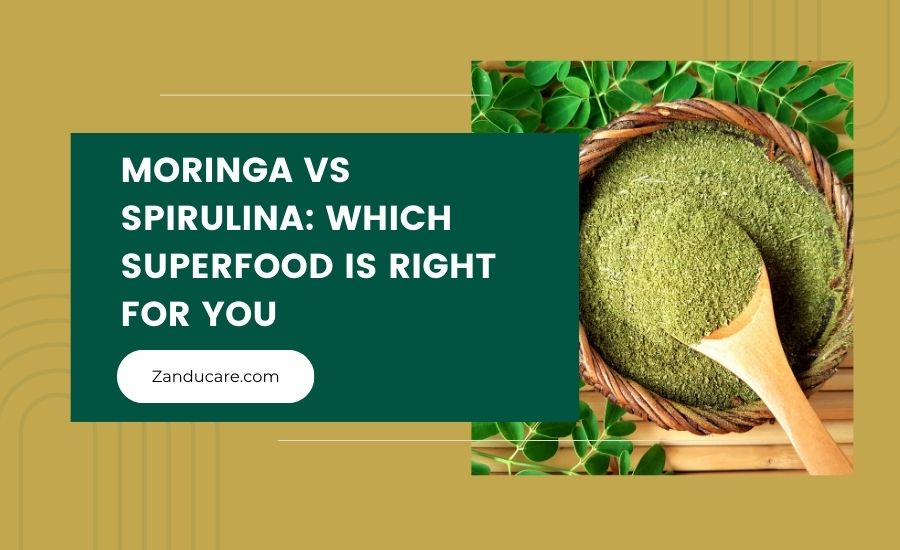In recent years, there has been a growing interest in herbal remedies for various health concerns. Two herbs that have gained popularity are Ashwagandha and Brahmi. Both these herbs have been used in traditional medicine for centuries and are known for their numerous medicinal properties. However, many people often confuse these two herbs and are not aware of their distinct characteristics. In this blog post, we will dive deep into the differences between Ashwagandha and Brahmi to help you understand which one is more suitable for your needs.
Did You Know
- Known by the botanical name Withania somnifera, ashwagandha is a widely used herb in Ayurvedic medicine.
- Helps in reducing anxiety and depression.
- Reduce infertility in males.
- Brahmi for age-related memory loss.
- Brahmi for brain
Ashwagandha: The Stress Buster
Known by the botanical name Withania somnifera, ashwagandha is a widely used herb in Ayurvedic medicine. It is a small shrub that is a member of the Solanaceae family. It may help with various ailments, but its main usage is as a nervine tonic, which calms the nerves. Indian winter cherry or Indian ginseng are other names for ashwagandha.
The rasayana (tonic) properties of ashwagandha are well-known. Rasayana is an herbal or metallic mixture that promotes happiness and a youthful physical and mental state of health.

Brahmi: The Memory Booster
Bacopa Monnieri, another name for brahmi, is a member of the Scrophulariaceae family. It is a small perennial plant that is glabrous (smooth), succulent (stems designed to hold water), creeping, or prostrate (branches above the ground). In India, it is referred to locally as Jalanimba or brahmi, and it is also known as Herpestis Monniera or tiny bushy water hyssop. The word "Brahma," which denotes the Hindu mythological God of creation, is the source of the term "Brahmi."
Ashwagandha vs Brahmi: General Differences
| Feature |
Brahmi (Bacopa Monnieri) |
Ashwagandha (Withania Somnifera) |
| Origin |
Native to India, Australia, and Southeast Asia |
Native to India, the Middle East, and parts of Africa |
| Names in Different Languages |
Bacopa Monnieri, Waterhyssop, Indian Pennywort, Herb of Grace, Jalabrahmi (in Hindi), Neerbrahmi (in Malayalam) |
Withania Somnifera, Indian Ginseng, Winter Cherry, Asgandh (in Hindi), Amukkara (in Tamil), Samm Al Ferakh (in Arabic) |
| Appearance |
Small herb with oblong leaves and small white or purple flowers |
Shrub with oval leaves and small greenish-yellow flowers |
| Traditional Use |
Used as a brain tonic and tablets in Ayurveda to enhance memory and cognition |
Used as an adaptogen medicine for stress relief, vitality, and rejuvenation |
| Main Benefits |
Cognitive enhancement, anxiety relief, memory support |
Stress reduction, improved stamina, hormone balance |
| Key Nutrients |
Bacosides, alkaloids, flavonoids |
Withanolides, iron, alkaloids, antioxidants |
Ashwagandha vs Brahmi: Key Differences in Benefits, Effects & Consumption
| Feature |
Brahmi (Bacopa Monnieri) |
Ashwagandha (Withania Somnifera) |
| Supports Healthy Aging |
Yes, through antioxidant and neuroprotective effects |
Yes, reduces cellular aging and oxidative stress |
| Aids Testosterone Levels in Men |
Not directly linked |
Proven to enhance testosterone and male fertility |
| Promotes Heart Health |
Improves circulation and reduces anxiety-related cardiovascular strain |
Helps lower cholesterol and blood pressure |
| Enhances Mental Clarity and Focus |
Strong cognitive enhancement and memory booster |
Indirect improvement by reducing stress and enhancing sleep |
| Usage Forms |
Powder, capsules, tablets, tea |
Powder, capsules, tablets, extracts |
| Dosage |
300–500 mg/day (standardized extract) |
300–600 mg/day (standardized extract) |
| Best Time to Take |
Morning or afternoon |
Morning or evening |
| Taste |
Bitter and astringent |
Bitter and slightly earthy |
| Side Effects |
Dry mouth, fatigue, nausea (rare) |
Drowsiness, stomach upset, diarrhea (rare) |
| Contraindications |
Pregnant women, individuals on sedatives or thyroid medications |
Pregnant women, those with hyperthyroidism |
| Scientific Research |
Widely studied for cognitive benefits and anxiety reduction |
Extensive studies on adaptogenic, anti-stress, and testosterone effects |
| Availability |
Easily available in Ayurvedic stores and online |
Widely available worldwide in supplement form |
| Cost |
Generally Affordable |
Mid-range to high depending on the form |
| Overall Uses |
Memory enhancer, anxiety relief, cognitive health |
Stress management, vitality, hormone balance, immunity booster |
Benefits of Ashwagandha
Here are some of the benefits of Ashwagandha: -
Helps in reducing anxiety and depression
Anxiolytic (anxiety-relieving) properties of ashwagandha may be similar to those of lorazepam. An animal study suggests that lorazepam and ashwagandha may both help lower anxiety in animal models.
Additionally, ashwagandha may have some antidepressant effects. This suggests that ashwagandha may be beneficial for anxiety and depression. Still, more investigation is needed. One should seek expert medical assistance for anxiety and depression since they may require significant care.

Reduce infertility in males
Ashwagandha reduces stress-related male infertility by balancing Vata. It also improves sperm quality and quantity, lowering the likelihood of male infertility. This is a result of its aphrodisiac (or Vrishya) qualities.
Helps in relieving pain
Ashwagandha have analgesic properties because a study found that administering an aqueous extract of the herb to patients increased their pain threshold—the limit beyond which a trigger causes pain—when compared to a placebo. Nevertheless, more investigation is needed to cite these as verifiable truths.
Manages arthritis pain
Ashwagandha is helpful in the treatment of arthritis pain. Sandhivata, or aggravated Vata dosha, is the cause of arthritis, according to Ayurveda. It results in joint movement, discomfort, and swelling. Ashwagandha powder relieves joint pain and swelling associated with arthritis and has Vata-balancing properties.
Also, do check our 100% Ayurvedic Ashwagandha products:
Benefits of Brahmi
Some of the health benefits of Brahmi are as follows: -
Brahmi for age-related memory loss
When taken regularly, Brahmi helps manage age-related memory loss. Vata is said to be in charge of the neurological system in Ayurveda. Weak memory or low mental attentiveness are symptoms of an imbalance in Vata. Brahmi provides immediate mental alertness and is helpful in improving memory. This is because of its ability to balance Vata and promote wisdom (Medhya).
Brahmi for epilepsy/seizures
Brahmi aids in the treatment of epileptic symptoms. Epilepsy is referred to as Apasmara in Ayurveda. Seizures occur during episodes in epileptic patients. An irregular electrical activity in the brain causes uncontrollable fast movements of the body during a seizure. It could possibly result in unconsciousness.
Each of the three doshas—Pitta, Kapha, and Vata—is involved in epilepsy. Brahmi lessens seizure episodes and aids in the balancing of all three doshas. Owing to its Medhya (increased intelligence) quality, Brahmi also contributes to the maintenance of normal cerebral function.
Helps in making hair smooth and healthy
Brahmi's benefits for hair care have received a lot of attention because the herb nourishes hair follicles and promotes healthy hair development. Additionally, the antioxidant properties of Brahmi protect hair from environmental stressors and free radical damage.
Regular use of Brahmi oil or other hair treatments containing Brahmi can help prevent premature greying of the hair, reduce hair loss, and enhance the overall condition of your hair.
Also, do check our 100% Ayurvedic Brahmi products:
Brahmi for brain
For a very long time, Brahmi has been revered and acknowledged for its beneficial effects on the brain. Numerous research investigations have shown the beneficial effects of Brahmi oil on the brain. It is believed to stimulate neurotransmitter activity, particularly in regions of the brain linked to memory and learning.
Additionally, it is believed that this plant alters stress-related hormones like cortisol, promoting calmer, more relaxed moods. Additionally, the benefits of Brahmi for the brain may help prevent neurodegenerative illnesses like Alzheimer's and age-related cognitive decline.
Also, read:
Conclusion
Both Ashwagandha and Brahmi have their own unique benefits and uses. If you are looking for an herb to help you manage stress and anxiety, Ashwagandha may be a better option. On the other hand, if you are looking to improve your memory and focus, Brahmi may be more suitable for you. It's important to consult with a Zanducare Ayurvedic healthcare professional before incorporating any new herbs into your routine. So, choose the herb that aligns with your specific needs and reap its amazing benefits!
FAQs
1. What is better, Ashwagandha vs Brahmi?
Ashwagandha is better for reducing stress and boosting energy, while Brahmi excels in improving memory and cognitive function. Your choice depends on your specific health goals.
2. Can I take Brahmi and Ashwagandha together?
Yes, ashwagandha and Brahmi can be taken together. Combining these two increases brain activity.
3. Who should not eat brahmi?
Brahmi is not recommended for anyone with thyroid conditions, asthma, or digestive disorders. Due to inadequate safety data, women who are pregnant or nursing should also avoid it.
4. Can Brahmi increase brain power?
Because brahmi powder is an antioxidant, consuming it with milk helps to boost brain function by preventing damage to brain cells from free radicals.
5. Can I take Brahmi daily?
According to licensed Zanducare Ayurvedic physicians, using two to three grams of Brahmi powder each day with meals is safe.
6. Is Brahmi safe for the liver?
Brahmi might affect how the liver functions. Therefore, it is usually recommended to keep an eye on your liver function when taking Brahmi in addition to hepatoprotective medications.
7. Is Brahmi a blood thinner?
Brahmi possesses a slight blood-thinning effect. In addition to enhancing blood circulation, it might have a minor anticoagulant effect. But before using Brahmi as a blood thinner, it's always a good idea to speak with a doctor.
References
- Known by the botanical name Withania somnifera, ashwagandha is a widely used herb in Ayurvedic medicine. (https://www.ncbi.nlm.nih.gov)
- Helps in reducing anxiety and depression. (https://www.sciencedirect.com/)
- Reduce infertility in males. (https://www.ncbi.nlm.nih.gov/)
- Brahmi for age-related memory loss. (https://www.researchgate.net/)
- Brahmi for brain. (https://www.researchgate.net/)










Leave a comment
This site is protected by hCaptcha and the hCaptcha Privacy Policy and Terms of Service apply.